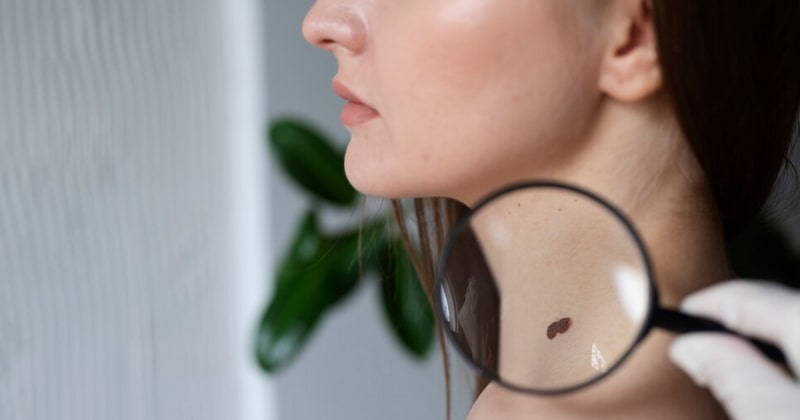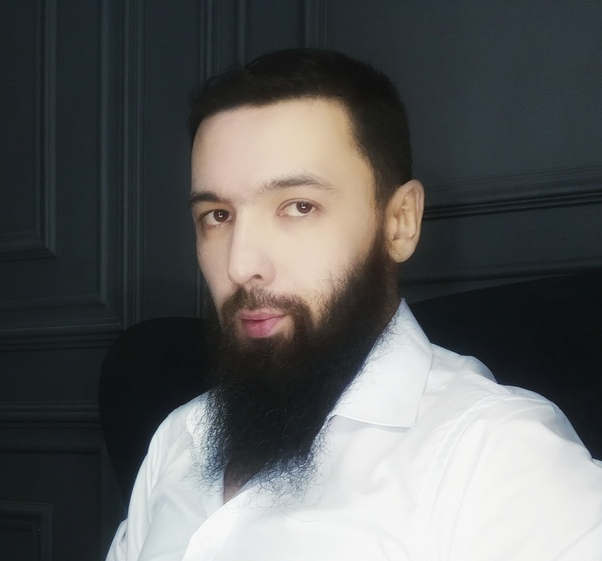
Skin cancer is one of the most common and widely recognized forms of cancer, with a growing number of diagnoses every year. While it is often seen as less dangerous than other types of cancer, it can still present serious health risks, particularly when it spreads to other parts of the body. As with all cancers, the emotional and psychological toll of a skin cancer diagnosis can be overwhelming. In addition to the physical treatments—such as surgery, radiation, or chemotherapy—patients often need emotional and spiritual support to cope with the journey ahead.
Ruqyah, the Islamic practice of healing through the recitation of Qur’anic verses, can provide this essential support. By focusing on both the emotional and spiritual aspects of illness, Ruqyah offers an opportunity to align the body, mind, and soul. Through its practice, patients can experience comfort, peace, and emotional resilience, which are crucial elements of healing and recovery.
UNDERSTANDING SKIN CANCER
Skin cancer develops when the skin cells begin to grow uncontrollably. There are three main types of skin cancer: basal cell carcinoma (BCC), squamous cell carcinoma (SCC), and melanoma. While BCC and SCC are generally less aggressive and can often be treated successfully if caught early, melanoma is a more dangerous form of skin cancer that can spread rapidly to other parts of the body.
The primary causes of skin cancer include prolonged exposure to ultraviolet (UV) radiation from the sun or artificial sources such as tanning beds. This radiation can damage the DNA in skin cells, leading to abnormal growth and, eventually, the formation of cancerous tumors. Symptoms of skin cancer vary depending on the type, but common signs include changes in the appearance of moles, skin lesions, or growths on the skin that may itch, bleed, or become painful.
As with other forms of cancer, skin cancer can have a profound emotional impact. Patients may struggle with feelings of fear, anxiety, and uncertainty about their prognosis, especially when dealing with melanoma, which has a higher rate of metastasis (spread to other organs). During such times, emotional and spiritual support becomes essential for maintaining hope and a positive outlook.
THE ROLE OF RUQYAH IN HEALING
Ruqyah offers an Islamic approach to healing, combining the power of divine recitation with the intention of healing the body, mind, and soul. The Qur’anic verses recited during Ruqyah are believed to have a direct impact on the spiritual state of the patient, helping to alleviate negative emotions such as fear, anger, and despair.
In the case of skin cancer, Ruqyah can be a powerful tool for providing emotional resilience and spiritual strength. The Qur’anic recitations help soothe the heart and mind, promoting a sense of peace and reducing the psychological burden of the illness. This emotional calm can be particularly helpful for those undergoing treatment, as it allows the patient to maintain a positive attitude and stay connected to their faith.
Several studies have shown that spiritual practices, including the recitation of sacred texts, can have a positive effect on the psychological and physical well-being of cancer patients. In a 2013 study published in the Journal of Alternative and Complementary Medicine, researchers found that patients who engaged in spiritual practices such as prayer and meditation reported lower levels of anxiety and depression, as well as better coping abilities during their treatment.
Furthermore, Ruqyah can help address the underlying emotional and spiritual causes of illness, which are often overlooked in traditional medicine. In Islamic belief, illness is not seen merely as a physical ailment but as a reflection of imbalances in the soul and heart. By reciting Qur’anic verses during Ruqyah, the patient can find comfort and healing on a deeper level, promoting overall well-being.
SCIENTIFIC EVIDENCE & POWER OF SOUND HEALING
The concept of sound healing has long been acknowledged in many cultures, and scientific research continues to explore the benefits of therapeutic sound in medicine. Studies on music therapy and sound healing have shown that certain frequencies can help alleviate pain, reduce stress, and even promote healing by stimulating the body’s natural healing processes.
In 2017, a study published in the Journal of Pain Research found that listening to soothing sounds, including religious recitations, significantly reduced levels of pain and anxiety in patients with chronic conditions. While this study did not focus specifically on Ruqyah, it highlights the potential of sound healing as a complementary therapy for cancer patients.
The Qur’anic recitations used in Ruqyah are believed to create a profound vibrational effect that resonates with the body and soul. Surah Al-Fatiha, Surah Al-Baqarah, and Surah Al-Ikhlas, in particular, are known for their spiritual and healing properties. The vibrations created by the recitation of these verses can help release emotional blockages, reduce stress, and bring about a sense of tranquility and balance.
The soothing effects of these Qur’anic verses may also help reduce inflammation and stress—two factors that can negatively impact cancer progression. By promoting emotional calm and spiritual healing, Ruqyah can complement traditional medical treatments by fostering an environment that supports the body’s natural ability to fight the disease.
SPIRITUAL ASPECT OF SKIN CANCER
In Islamic teachings, illness is often viewed as a test of faith and resilience. It is believed that every affliction, including skin cancer, happens according to the will of Allah (God), and through this test, believers are given the opportunity to grow in patience (sabr) and trust (tawakkul) in Allah’s plan.
Ruqyah can provide profound spiritual support during this testing time. By reciting the Qur’an, patients are reminded that their faith and trust in Allah are key to overcoming challenges, whether physical, emotional, or spiritual. Through this process, patients may feel a deeper connection to their faith, which can help them endure the trials they face with a sense of peace and confidence.
In addition to offering spiritual comfort, Ruqyah can help protect the patient from feelings of despair, frustration, and anger, which are common when dealing with the emotional toll of cancer. Instead of succumbing to negative emotions, Ruqyah encourages the cultivation of patience and perseverance, which are essential for navigating the difficulties of cancer treatment and recovery.
RUQYAH AS A COMPLEMENTARY PRACTICE FOR SKIN CANCER
Ruqyah should be viewed as a complementary therapy that enhances the physical and emotional healing process of skin cancer patients. While it is not a substitute for conventional medical treatments, it can significantly improve the quality of life by providing emotional support, spiritual strength, and mental resilience.
The recitation of Qur’anic verses during Ruqyah promotes peace, reduces stress, and helps align the soul with the divine, all of which can have a positive impact on the patient’s ability to cope with the challenges of skin cancer treatment. When integrated with medical care, Ruqyah can offer a holistic approach to healing, addressing both the spiritual and emotional aspects of the illness.

